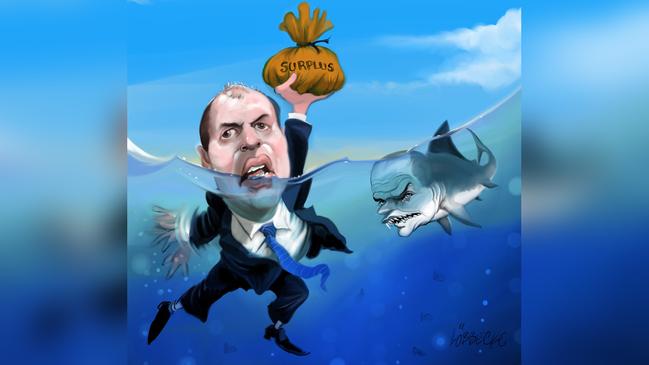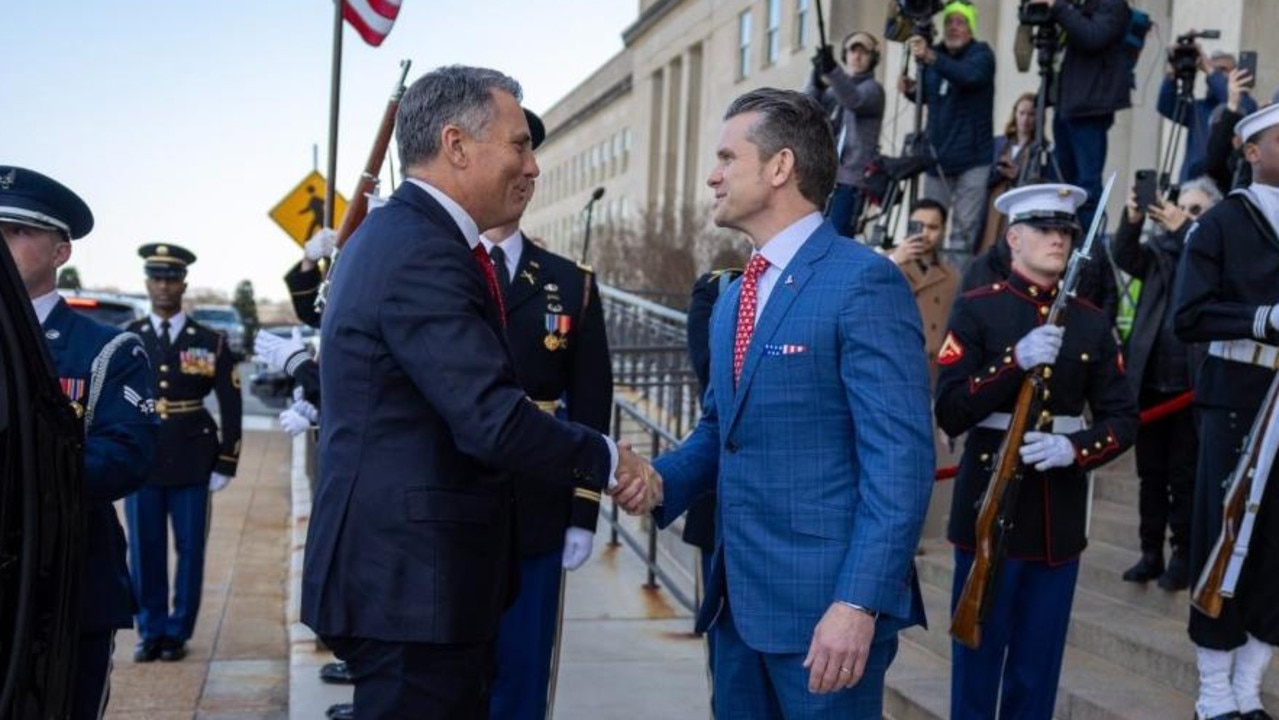
With an election expected to be called as early as Friday, last night’s budget was as much an election manifesto as it was the government’s fiscal priorities for the coming year.
After all, given the polls, there’s every likelihood this budget will never see the legislative light of day; so it’s drafted not only in the hope of delivering the government momentum as it moves into the official campaign, but as a document to capture the Coalition’s two-term economic legacy, and to act as a marker, should it end up in opposition, of the Coalition’s six-year budget repair effort.
In a speech that read like a campaign launch, replete with support for all the government’s key constituencies, it was the oft-repeated refrain “all without increasing taxes” that highlighted where Coalition strategists want to fight the coming electoral battle. To date, Labor’s plan for $200 billion in new taxes has slipped by most voters, but it’s now looking like it’s game on for the Morrison government. And so it should be.
After coming to office in 2013, full of promise and a commitment to end the era of Labor’s leadership instability and reckless spending, not to mention border protection failures and the denied but delivered carbon tax that haunted Julia Gillard to the end, the Liberal Party lost its way.
For many of its supporters, the removal of a first-term prime minister was the beginning of the end and set in train the return of a number of right-wing micro parties that continue to splinter the Coalition’s primary vote.
Add to this the Labor-lite agenda of Scott Morrison’s predecessor, where similarities with opponents were more discernible than the differences, and is it any wonder the Coalition is behind in chasing a third term?
Enter Josh Frydenberg. He might have been Treasurer for just a handful of months, but this is a job he’s prepared for (this and perhaps one other) for much of his adult life. I’ve known him now for the better part of 30 years and not for him the youthful questioning of political allegiance.
Deep in his DNA, Frydenberg has always been a Liberal and early on in his speech, where he outlined the values that shaped his economic plan, he sent a message to Liberal supporters around the country that following the departure of Malcolm Turnbull, the party of Menzies was back in Liberal hands: reward for effort, the power of aspiration and reward, upholding personal responsibility, and providing a helping hand to those who need it.
Returning the budget to surplus is about as Liberal as it gets. And that’s now been done, with a $55.5 billion turnaround from the deficit inherited from the Rudd-Gillard governments.
Critically, the budget papers include a transparent goal to eliminate commonwealth net debt by 2030, or sooner. If there was one unexploded piece of ordnance in last night’s speech for Labor, that was it. And should it win the election, this must not be forgotten.
Of course success has many fathers, but in repairing Labor’s damage much of the credit must go to Finance Minister Mathias Cormann, who for six years has maintained the discipline of spending restraint, serving three prime ministers but, above all, serving the Australian taxpayer.
After all, there’s not a dollar the government has that hasn’t come from someone else who’s worked hard to earn it.
The principle of letting people keep more of what they earn, rather than churn money through the system and pass it back as middle-class welfare, is something I know Cormann has fought hard to enshrine and he deserves the credit due to him. On his watch, the average annual growth in payments (spending), expected to be 1.9 per cent, is the lowest of any government (including the Howard government) in 50 years.
The ramifications of the Nationals’ three seat losses in NSW loom large in the boost to regional infrastructure in last night’s budget: road, rail, dams, and ports.
Of course, this is less about the Deputy Prime Minister’s clout around the cabinet table and more about the reality of defending seats (and winning some, given the government’s minority status) if power is to be retained.
An initiative to establish a national emergency response fund, to invest and grow an initial payment of $3.9 billion, safe in the hands of the Future Fund, should be applauded by all Australians as a way to better manage our droughts and flooding rains.
Lest anyone cry “extreme weather events” in response, this is in fact, a key plank of the adaptation response to climate issues, rather than a return of socialism, masquerading as environmentalism, so favoured by the global Left.
Which brings me to the election.
As steady as this budget is, it’s not the document that maps out the Coalition’s path to victory. That’s because voters don’t reward the Liberals for being the sound economic managers they elect them to be.
But there is a document that can turn around the Liberals’ fortunes; it was released on Monday, by Labor.
Full of economy-wide devastation, and hit after hit to households, for absolutely no environmental gain, Labor’s uncosted climate change policy gives the Morrison government its best chance of a win.
Provided, of course, the Coalition is willing to fight.



